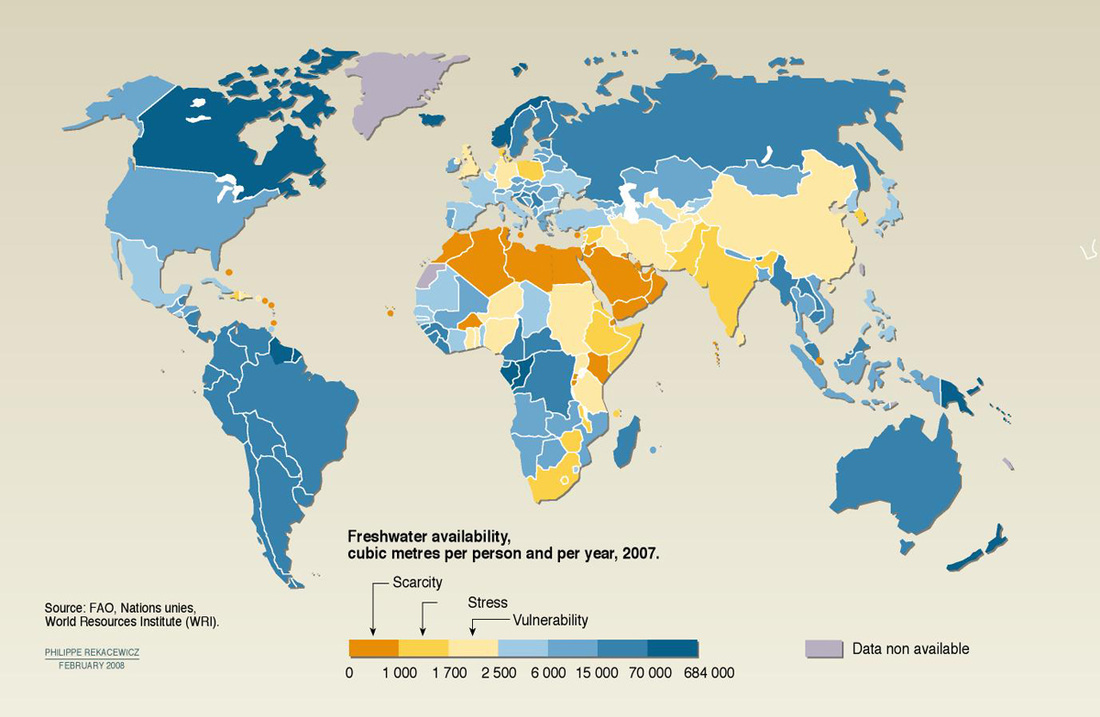
In an increasingly interconnected world, one of the most pressing challenges we face is the global water crisis. From escalating water scarcity to pollution and the lack of access to clean water, the severity of these issues demands urgent attention and concerted efforts toward sustainable solutions.
The Challenge of Water Scarcity
Water scarcity is a looming threat affecting millions worldwide. Rapid urbanization, population growth, and changing climate patterns contribute to the depletion of freshwater sources.
According to the United Nations, by 2025, nearly two-thirds of the world’s population could be living in water-stressed conditions.
Regions already grappling with water scarcity, such as the Middle East and parts of Africa, face exacerbated challenges. Prolonged droughts and irregular precipitation patterns further strain water resources, leading to agricultural failures, food insecurity, and social unrest.
Water Crisis by 2025
Pollution and Contamination
Equally critical is the issue of water pollution. Industrial discharge, agricultural runoff, and improper waste disposal contribute to the contamination of water bodies, endangering aquatic ecosystems and jeopardizing human health. The presence of pollutants, including heavy metals and harmful chemicals, poses long-term risks to both the environment and those dependent on water sources.
Inadequate sanitation facilities and untreated sewage also play a role in waterborne diseases, affecting vulnerable communities disproportionately. Contaminated water sources lead to the spread of illnesses, creating a cycle of poverty and compromised well-being.

Water pollution photo
Access to Clean Water
Ensuring access to clean water remains a formidable challenge, particularly in developing regions. A lack of infrastructure, coupled with socio-economic disparities, hinders communities’ ability to access safe and reliable water sources.
The burden often falls disproportionately on women and children, who spend hours each day collecting water, limiting their educational and economic opportunities.
 Woman in India collecting clean drinkable water for her family
Woman in India collecting clean drinkable water for her family
Sustainable Water Management Solutions
Addressing the water crisis requires comprehensive and sustainable approaches. Several initiatives and innovations offer hope for a more water-secure future:
- Water Conservation Practices
Implementing water conservation practices is paramount. Simple measures, such as fixing leaks, adopting efficient irrigation techniques, and promoting water-wise behaviors, contribute significantly to preserving this precious resource.

Community using rainwater to water their garden instead of using fresh clean water
- Reforestation and Watershed Management
Protecting and restoring natural ecosystems, such as forests and watersheds, play a crucial role in water management. Reforestation efforts help maintain water cycles, prevent soil erosion, and safeguard the quality of freshwater sources.

Community tree planting
- Efficient Agricultural Practices
Agriculture is a major water consumer. Implementing precision farming, drip irrigation, and sustainable land management practices can optimize water use, increase crop yields, and mitigate the impact of water scarcity on food production.

Farming accounts for around 70% of water used in the world today and also contributes to water pollution from excess nutrients, pesticides and other pollutants.
- Wastewater Treatment and Reuse
Treating and reusing wastewater represents a viable solution. Advanced technologies enable the purification of wastewater for agricultural irrigation and industrial processes, reducing the demand on freshwater sources.

Futurist watering drone to be used for agriculture
- Community Engagement and Empowerment
Empowering communities through education and collaborative water management initiatives is essential. Involving local residents in decision-making processes, water conservation campaigns, and the development of sustainable water infrastructure enhances the resilience of communities facing water challenges.

Community-based efforts
Conclusion
The global water crisis demands immediate and coordinated action. From addressing water scarcity and pollution to ensuring access to clean water, the challenges are multifaceted. However, by embracing sustainable water management practices and fostering innovation, we can navigate these challenges toward a more water-secure future.
As individuals, communities, and nations, our collective responsibility is to safeguard this invaluable resource for current and future generations. Through concerted efforts, we can turn the tide on the water crisis and ensure a sustainable, equitable, and thriving world where clean water is a universal right, not a privilege.





